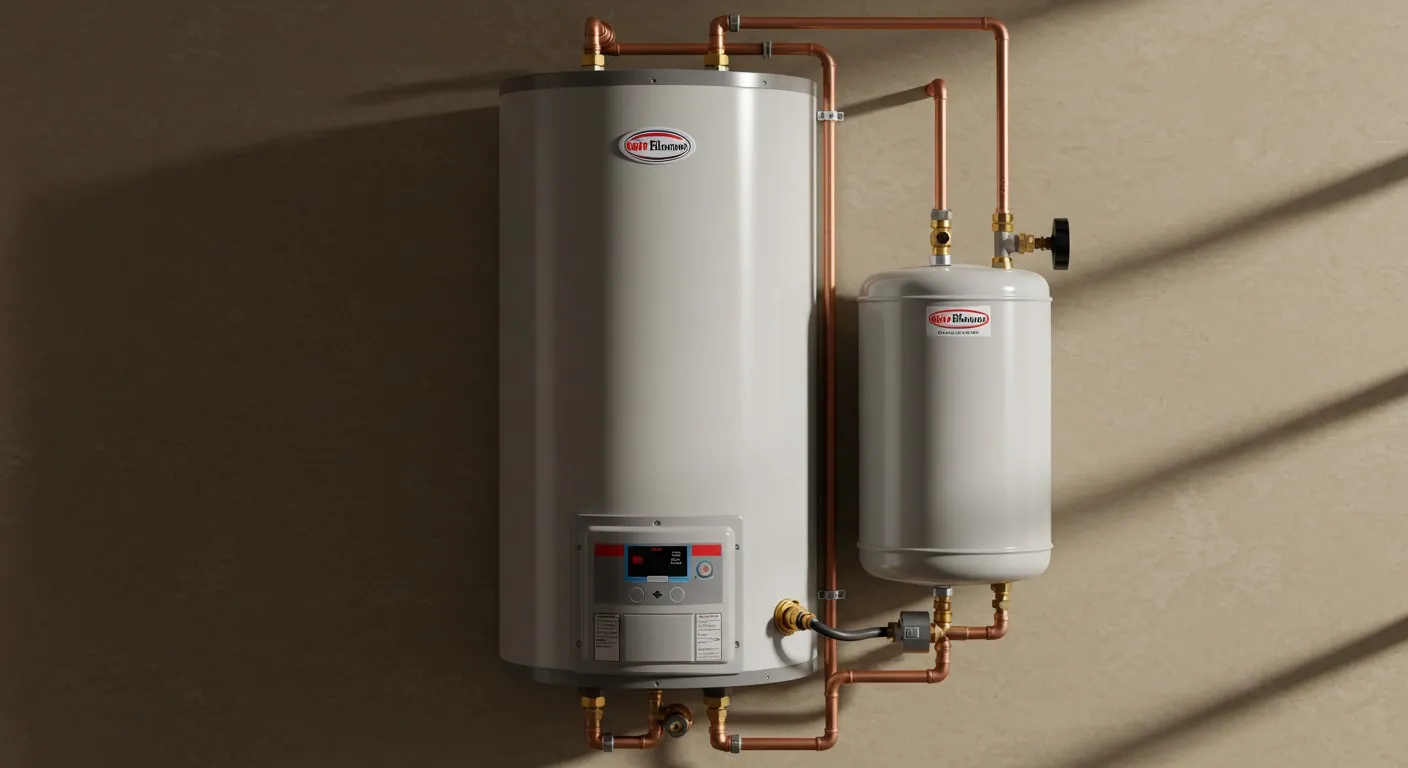Gas Water Heaters in Mt Lebanon, PA

Why Choose a Gas Water Heater?
- Faster recovery rate: Heat more gallons per hour than electric units.
- Lower utility bills: Natural gas rates often undercut electricity prices.
- High capacity: Standard tanks up to 80 gal or condensing models for greater efficiency.
- Dependable operation: Runs during power outages (if pilot light is retained).
- Long lifespan: Well-maintained gas heaters last 10–15 years with proper care.

Our Gas Water Heater Services
Installation & Replacement
- Full site evaluation, sizing analysis and permit management
- Expert gas-line connection, venting and combustion air provisions
- Removal and eco-friendly disposal of old equipment
- Integration with existing plumbing and gas-supply systems
For detailed guidance on new installs, see our Water Heater Installation page.
Repair & Emergency Service
- Pilot light or ignition failures
- Sediment buildup, hot-water limps and slow recovery
- Leaks, rust spots and pressure-valve malfunctions
- 24/7 rapid-response options for burst tanks and gas-smell emergencies
Learn more about our service protocols on the Water Heater Repair & Replacement page.
Proactive Maintenance Plans
- Annual safety inspections and combustion-efficiency tune-ups
- Flushing schedules to remove scale and sediment
- Pressure-relief-valve testing and gas-line leak checks
- Priority scheduling, discounted parts and labor rates
Discover plan details under our Maintenance Plans offering.
Installation Process & Code Compliance
Initial Survey & Sizing
- Evaluate household hot-water demand (number of bathrooms, appliances).
- Determine tank volume or condensing/tankless flow rate.
Permit Acquisition
- File necessary permits with Mt Lebanon municipal authorities.
- Coordinate inspections for gas-line and vent installations.
Gas-Line Sizing & Connection
- Calculate BTU demand and appropriate pipe diameter.
- Install new or extend existing lines with approved fittings.
Venting & Combustion Air
- Design direct-vent, power-vent or natural-draft systems per PA code.
- Install draft hoods, termination caps and inline fans where required.
Safety Inspection & Testing
- Pressure-test gas lines and verify leak-free joints.
- Combustion-analyzer check for CO levels and draft integrity.
- Final sign-off and homeowner orientation on operation and shutoff.
Cost & Financing
Understanding cost factors upfront helps you budget and compare options. Typical expenses for a standard 40–50 gal gas water heater in Mt Lebanon:
- Equipment: $600–$1,000 (standard tank); $1,200–$2,500 (condensing high-efficiency)
- Labor: $500–$900 (installation, gas-line and venting work)
- Permits & inspections: $75–$200, depending on municipal fees
- Gas-line upgrades (if needed): $200–$800
- Local rebates and incentives can offset costs:
- Peoples Natural Gas Efficiency Rebate Program (up to $100)
- UGI Gas Appliance Rebates (varies by model)
- Federal Tax Credit (up to 30% on qualifying condensing equipment)
- Flexible financing options are available through trusted partners such as GoodLeap and FSNB, offering deferral periods and manageable monthly payments.
Choosing the Right System
Traditional Tank Units
- Simple design, lower upfront cost
- 40–80 gal sizes, recovery rates 30–50 GPH
High-Efficiency Condensing Tanks
- Secondary heat exchanger captures waste heat
- Efficiency ratings 90%+; ideal for larger homes
Tankless (On-Demand) Hybrids
- Continuous hot water; no standby losses
- Requires larger gas-line capacity; suited to point-of-use or whole-home use
Sizing guide:
- 1–2 people = 30–40 gal tank or 6–8 GPM tankless
- 3–4 people = 40–50 gal tank or 8–10 GPM tankless
- 5+ people = 50–80 gal tank or multiple tankless units
Signs You Need Replacement
- Age exceeds 10–12 years with rising failure risk
- Rusty water, corroded connections or interior rust
- Frequent pilot-light outages or ignition trouble
- Loud rumbling, gurgling or sediment-driven noise
- Sharp spikes in monthly gas bills
- Leaks around the tank base or pressure-valve drips
FAQs
Still have questions?
Contact Our Reliable & Experienced Team Members!
The average lifespan of a traditional water heater is between 6 to 10 years. This can vary based on usage, water quality, and maintenance. Regular flushing and inspections can help extend its lifespan. Better quality tanks last longer.
Signs that you may need a replacement include rusty water, strange noises, inconsistent water temperature, and leaks around the tank. If your unit is over 10 years old and showing these issues, it may be time for a new water heater.
The right size depends on your household’s hot water usage. For a family of four, a 40-50 gallon water heater is typically sufficient. For larger households, a larger capacity unit may be more appropriate. Consulting with a professional can help you choose the right size.
You can improve efficiency by lowering the thermostat to 120°F, insulating the tank, and flushing the tank annually to remove sediment buildup. These steps reduce energy use and improve performance.
Banging or rumbling noises are often caused by sediment buildup at the bottom of the tank. As water heats up, the sediment can trap air bubbles, causing these sounds. Flushing the tank can usually resolve this issue.


Schedule Service Today!
Contact us to schedule or request an estimate on installation and replacements!






















.avif)



